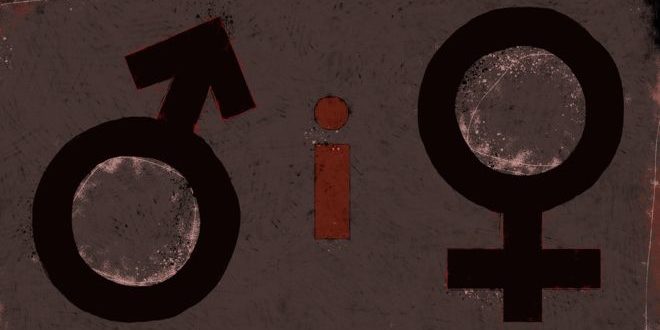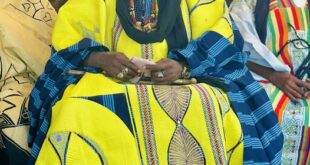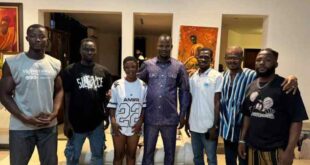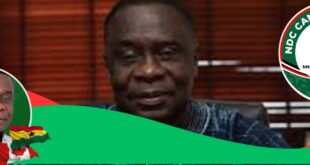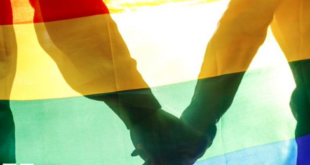Kenya will become the first country in Africa to collect data on intersex people in its national population census, in a major victory for rights activists.
The August survey will determine the number of citizens who do not identify as either male or female.
Intersex people in Kenya often face violence and discrimination.
There are thought to be more than 700,000 of them out of a general population of 49 million.
“Getting information about intersex people in the census will help people understand the challenges we go through,” Ryan Muiruri, founder of the Intersex Persons Society of Kenya (IPSK), said he welcomed the government’s decision.
“Being included in the census is a big achievement for us,” he told the BBC.
South Africa was the first African country to explicitly include intersex people in anti-discrimination law.
What is the background?
In 2009, a woman in Kenya went to court after doctors wrote a question mark instead of a gender on her child’s birth papers.
He wanted three things: identity documents for her child to be able to attend school, a law preventing surgery on intersex children unless it is medically necessary, and proper information and psychological support for parents.
In a landmark ruling in 2014, the High Court ordered the government to issue a birth certificate to the five-year-old child.
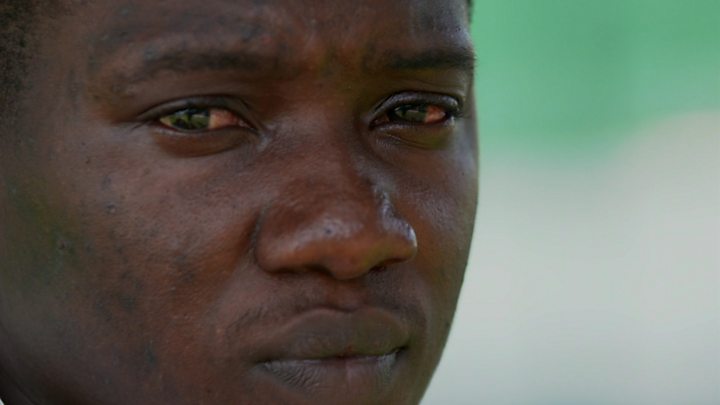
In addition, it ordered the attorney general to create a task force that would look at ways of providing better support for intersex children.
That task force handed its recommendations to the Attorney General in April. They include delaying surgery until children can choose for themselves and a robust survey on numbers.
It also recommended that an I-marker, an intersex identifier, be used in public documentation.
Intersex
- An umbrella term used to describe people who are born with biological variations in their sex characteristics that don’t fit typical male or female categories
- There are many possible variations, involving genitalia, ovaries and testicles, chromosome patterns and hormones
- The UN says that according to experts, between 0.05% and 1.7% of the population is born with intersex traits.
You may also be interested in:
- Africa Live: Updates on this and other stories
- ‘The doctor wrote a question mark for my child’s sex’
- The midwife who saved intersex babies
- Now I have a penis, I hope I will find love
- Doctors hid secret from me
‘They wanted to know if I squat or stand’
Ryan Muiruri, IPSK founder, speaking to BBC
I was born an intersex but assigned a female identity and named Ruth. My parents didn’t accept me and went to the witchdoctor because they wanted to correct what most people saw as a curse.
People would tease my mum about my identity, and I would often see her crying.
I knew I was different when I was five.
One day when I was playing with other children, one of them called me a girl and another said: “Who told you Ruth is a girl.”
They went ahead to undress me.
In school, every time I went to the toilet people would follow me to see if I stand or squat. It was so embarrassing and extremely uncomfortable.
One thing that hurt me the most is being called “a curse” by a village elder and being blamed for a drought that had hit our region.
I tried to take my life five times because I felt alone and rejected.
One day I was in a bank to do a transaction, the teller called the police instead accusing me of impersonation. I tried to explain my situation to them but they didn’t understand.
It’s only after I undressed that they believed me and allowed me to do the transaction.
I started the Intersex Persons Society of Kenya to help people like me.
Being included in the national population census is a big achievement for us.

An intersex timeline
- 2013 The UN special rapporteur on torture says non-consensual “genital normalising surgery arguably meets the criteria for torture”
- 2015 Malta becomes the first country to ban non-consensual modifications to sex characteristics
- 2017 Human Rights Watch and interACT call for a moratorium on all safely deferrable surgical procedures on children with atypical sex characteristics
- 2018 Germany adopts intersex identity into law – people can register as intersex on birth certificates and passports from 1 January 2019
- 2019 a UK task force of NHS doctors and intersex activists is assembled to look into informed consent and surgery on children
- 2019 Kenya to collect data on intersex people in its national census
BBC
 Home Of Ghana News Ghana News, Entertainment And More
Home Of Ghana News Ghana News, Entertainment And More
